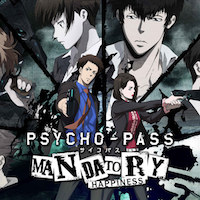Ever notice all the 4 star reviews plastered over movie posters? In the world of movies, music and pretty much any other form of entertainment open to critique, a 4 star review is something to be very proud of – something worth showing off. Oh, unless that form of entertainment happens to be videogaming.
To put things into perspective, a 4 star rating equates to an 80% review score. Can you imagine Infinity Ward or Ubisoft celebrating the latest 80% review score to drop on Matacritic? I think not. Somewhere down the line, 70% became the average and anything under 90% became a disappointment. Has videogame journalism always been like this or have reviewers become subconsciously more lenient thanks to the Metacritic effect?
Ok, so the relative infancy of the medium will inevitably lead to extra kudos points for technical proficiency (even if the product is completely lacking from an artistic standpoint), but the strange thing is, gamers are some of the most demanding and critical folk you will find on the internet. So what gives with the strange insistence upon a review scale that rarely falls below the 60% mark or the forum backlash anytime a big name game receives a review score of less than 80% (case in point – Edge Magazine’s very reasonable 7 out of 10 for Killzone 2)?
An example that really drove home the difference between movie and videogame reviews for me were the scores for the Thor movie and its accompanying videogame adaptation. While the movie was admittedly better reviewed, the 10% swing is nowhere near representative of the huge gulf in quality between the extremely entertaining, generally well liked movie and the bland, by the numbers videogame adaptation. The general consensus is that the videogame is at best passable and at worst a complete waste of time – and yet it still garners an average review score of 50%, a score that in any other form of entertainment would be correctly classed as average (believe me – Thor the Videogame does not reach the heady heights of average).
I would like to think that videogame reviews have always been this way but taking a look at the highest reviewed games of all time reveals a list made up almost exclusively of games from this generation. Sure, there are a few N64, Dreamcast and PSOne games to be found, but the vast majority are from the last few years. I’m willing to accept that there have been a lot of absolutely fantastic games released over the past few years but the link between the arrival of Metacritic and increasingly positive review scores does seem to exist…..and specifically in the one industry in which its score seems to matter most.
I’m not suggesting for a second that this change has been made intentionally or that reviewers are ramping up their scores to keep publishers happy in light of the ever growing importance of Metacritic within the industry, but I do believe that there has been a natural progression that has occurred almost subconsciously since its introduction and subsequent perceived importance.
Maybe I’m wrong – maybe it’s just the speed in which the industry is currently evolving that is keeping scores up….maybe it’s something else entirely. What do you think? Have videogame review scores always worked on a unique scale or is the Metacritic effect at least partly to blame?
Subscribe to our mailing list
Get the latest game reviews, news, features, and more straight to your inbox
Thank you for subscribing to Bonus Stage.
Something went wrong.
-
Gameplay - /10
0/10
-
Graphics - /10
0/10
-
Sound - /10
0/10
-
Replay Value - /10
0/10






